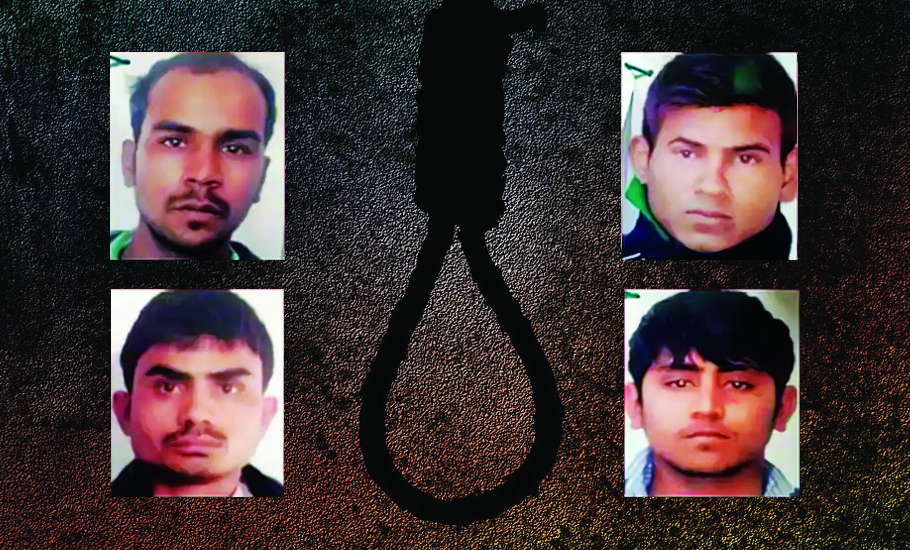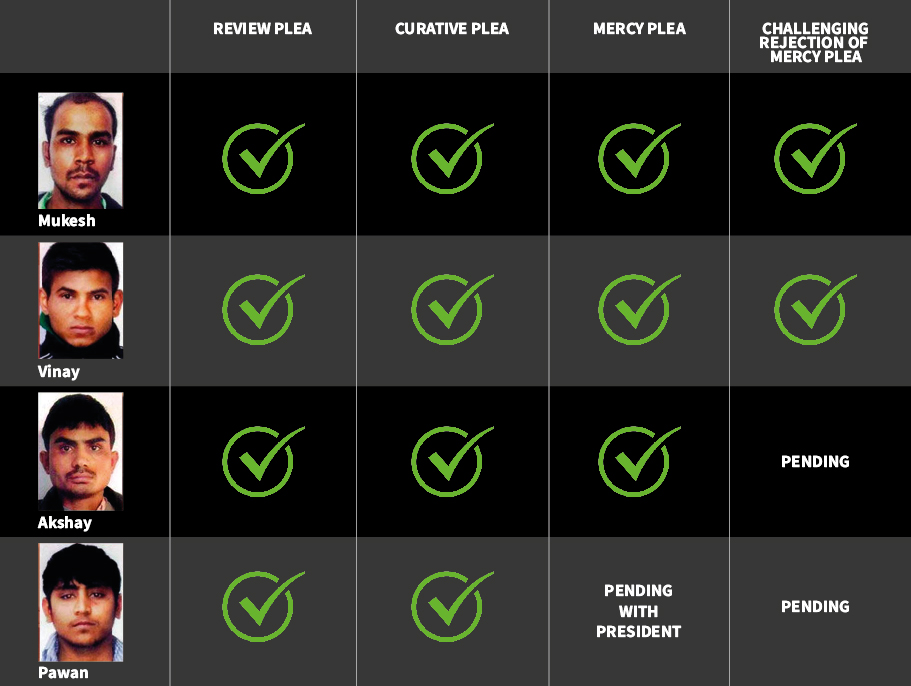
What were the legal options available to the Nirbhaya convicts?
A Delhi court on Monday deferred the execution of the four convicts in the Nirbhaya gang-rape and murder case after the mercy petition of one of the convicts, Pawan Kumar Gupta was rejected by President Ram Nath Kovind earlier in the day.

A Delhi court on Monday (March 2) deferred the execution of the four convicts in the Nirbhaya gang-rape and murder case after the mercy petition of one of the convicts, Pawan Kumar Gupta was rejected by President Ram Nath Kovind earlier in the day.
The four of them were scheduled to be hanged to death on Tuesday (March 3) at 6 am. However, according to Delhi Prison rules, a convict has to be given 14 days time to “mentally prepare himself/herself” after the rejection of the mercy plea.
Pawan Gupta was the last of the four convicts to file the mercy plea, which is the final legal option available of a death-row convict. The others have exhausted all legal remedies available.
According to Jaishankar, an advocate from Thiruvananthapuram, Kerala, once a convict is sentenced to death, he/she can file a review petition to review the judgement and check the documents submitted as proof at the court.
If the review petition is dismissed, he/she can then file a curative petition. A curative petition is filed on two grounds:
i) If the accused’s counsel believes their argument has not been heard completely/fairly
ii) If there are doubts that the judgement was biased
If the curative petition too is rejected, the last option for a convict to escape the death sentence would be the mercy petition. The mercy plea will be filed to the President and has to be approved by him.

Does the state government have the right to kill someone?
“The state government isn’t killing anyone here. It is the judiciary that is executing the four convicts,” says Jaishankar.
“Citizens belong to the state government. Technically, the judiciary would be going against the state government by “killing” four of its people. (Since the judiciary generally follows the legal procedure to punish a criminal, a death sentence is justified in the “rarest of rare cases”.)
How is the gravity/severity of a crime determined?
According to Jaishankar, the gravity or seriousness of a crime is determined after taking into consideration the four components of crime: intention, preparation, attempt, and commission of a crime.
“What is the person’s intention for carrying out the crime? What were the circumstances that led to the incident? What was the manner in which he/she executed it? These factors are considered,” says Jaishankar.
Related news | Convicts in Nirbhaya gang-rape case to not be executed on Tuesday
He also said that the severity of a crime is evaluated based on the impact it has on the common man. “How brutal/gruesome was the incident? How did it affect the public’s conscience? These factors too determine the punishment a crime deserves,” he said.
Is it true that a convict on life imprisonment will be released after serving 14 years in prison?
According to the Code of Criminal Procedure (CrPC), life imprisonment refers to imprisonment till death. No duration (14 years, 20 years, or 30 years) for life imprisonment has been mentioned in the law.
However, there is a provision in the law that can reduce the duration served by the convict.
The respective state government holds the power to alter or suspend the prisoner’s duration, but only after ensuring that the convict has served a minimum of 14 years in jail.


